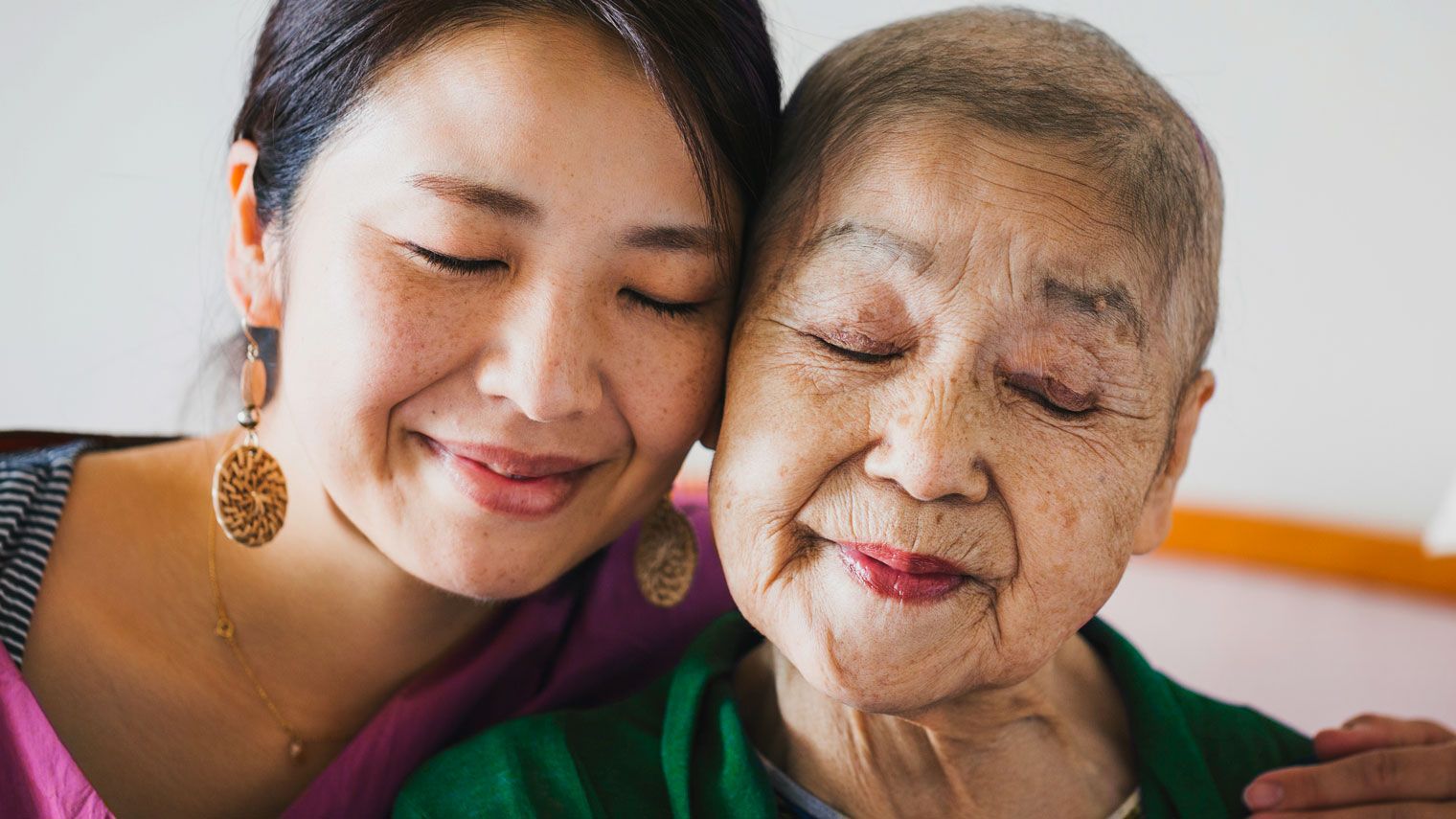Ask the Therapist: What Is Scanxiety?
October 24, 2023
Content created for the Bezzy community and sponsored by our partners. Learn More

Photography by Kohei Hara/Getty Images
If you’ve felt anxious before or after a cancer-related scan, you’re not alone. These tips may help you manage physical and mental symptoms of test-related anxiety.
It’s extremely common for people living with breast cancer and survivors to experience anxiety before, during, and after medical tests and imaging.
“Scanxiety” is a term cancer communities use for anxiety associated with cancer-related screenings.
“Anxiety is supposed to help us identify a predator, and that’s what our system has evolved to do: remember triggers around danger,” said Bartja Wachtel, a Seattle, Washington-based therapist specializing in working with people with chronic illness and anxiety.
“So, if you’ve had that experience of getting a diagnosis from a scan, of course, the next time you’re faced with that same experience, you’ll have that ‘fight, flight, freeze, or appease’ reaction,” Wachtel said.
What makes scanxiety distinct from other types of health anxiety is that cancer scans trigger it.
Writer Bruce Feiler coined the term “scanxiety” in a 2011 article in Time. But stress and anxiety related to cancer scans have long been part of the cancer experience.


You’re not alone
Scanxiety is common and can significantly affect your emotional well-being.
In a 2021 survey, up to 55% of participants reported experiencing scanxiety following their cancer diagnosis. The researchers also found scanxiety levels can peak while participants wait for results in the days following a scan.
A 2023 research review found that scanxiety can affect people with various types and stages of cancer. The review suggests that supporting people before and after a scan can improve their quality of life.
Causes of scanxiety
You may experience scanxiety for several reasons, according to the review above. Many people feel anxious about scan results directly. Others may feel anxious about experiencing claustrophobia in a CT scan machine. Concerns about radiation exposure may also cause feelings of panic.
“Anxiety is fear plus uncertainty,” Wachtel said. “Many people have that in the lead up to the test, but also afterwards in that horrible waiting period, where you have the time and space for your mind to ruminate and wonder and worry.”
anxiety = fear + uncertainty
— Barja Wachtel, Therapist
Causes of scanxiety may include:
- worry about what the scan will show
- a fear of hospitals or of how the scan results may affect your life
- unfamiliarity with the appointment process
- waiting for scan results
- a previous unpleasant experience or unfavorable outcome
- a lack of communication from the medical team
If you experience scanxiety for any reason, your feelings are valid. Scanxiety can be a typical reaction to what can be an unnerving experience: waiting for unknown test results.
Symptoms of scanxiety
Scanxiety symptoms are the same as anxiety associated with any other trigger. Anxiety can put the body on extreme alert, preparing it to respond to danger.
“Your threat defense system is reacting,” Wachtel said.
Scanxiety symptoms can differ for each person with it, and you may feel one or many symptoms. Here are common symptoms people experience before and after cancer-related imaging:
- nervousness or tension
- rapid breathing or hyperventilation
- sensations of dread, danger, or panic
- elevated heart rate
- insomnia
- increased sweating
- difficulty focusing on topics other than your scan
- digestive health effects like gas, constipation, or diarrhea
- lethargy or weakness
- trembling or twitching
- a desire to avoid scan-related discussions or activity
- panic attacks
Bezzy BC guide Monica Haro has experienced scanxiety, too. This is how she describes it:
I suddenly felt my throat tighten and became very scared. I was keenly aware of my heart pounding — irregularly, it seemed. My stomach felt airy and strange. This feeling spread to my arms and legs.
— Monica, Bezzy BC Community Guide
Tips for coping with scanxiety
If you have scanxiety, You can manage and reduce these feelings of worry in several ways. A therapist or psychologist can offer help and support, too.
Wachtel suggests trying these practices to soothe your scanxiety:
- Acknowledge the feeling: In a gentle voice, say, “I’m feeling anxious.”
- Touch your heart: Just like you physically attend to a baby when they’re upset, put a hand on your chest.
- Practice parasympathetic breathing: Take a deep inhalation through the nose and an extra-slow exhalation for twice as long. Repeat three times, then stop and notice how you feel.
- Pick up a fidget spinner: These can help manage stress by directing your attention to your extremities instead of your body and face, where you hold those difficult emotions.
- Be with loved ones: The more social you are, the more neuroprotective it can be. Socialization can reduce stress.
Monica also shares her tips for coping with breast cancer scanxiety in this article.
The bottom line
No matter where you are in your cancer experience, it’s natural to feel anxious about scans, especially if you received a diagnosis after a scan. Sometimes, acknowledging the feeling can help, too.
You can help reduce the severity of your scanxiety by spending time with loved ones, breathing deeply, and caring for yourself in ways unique to you.
And remember, the Bezzy BC community understands and is here for you in the community forums.
Medically reviewed on October 24, 2023
3 Sources


Like the story? React, bookmark, or share below:
Have thoughts or suggestions about this article? Email us at article-feedback@bezzy.com.